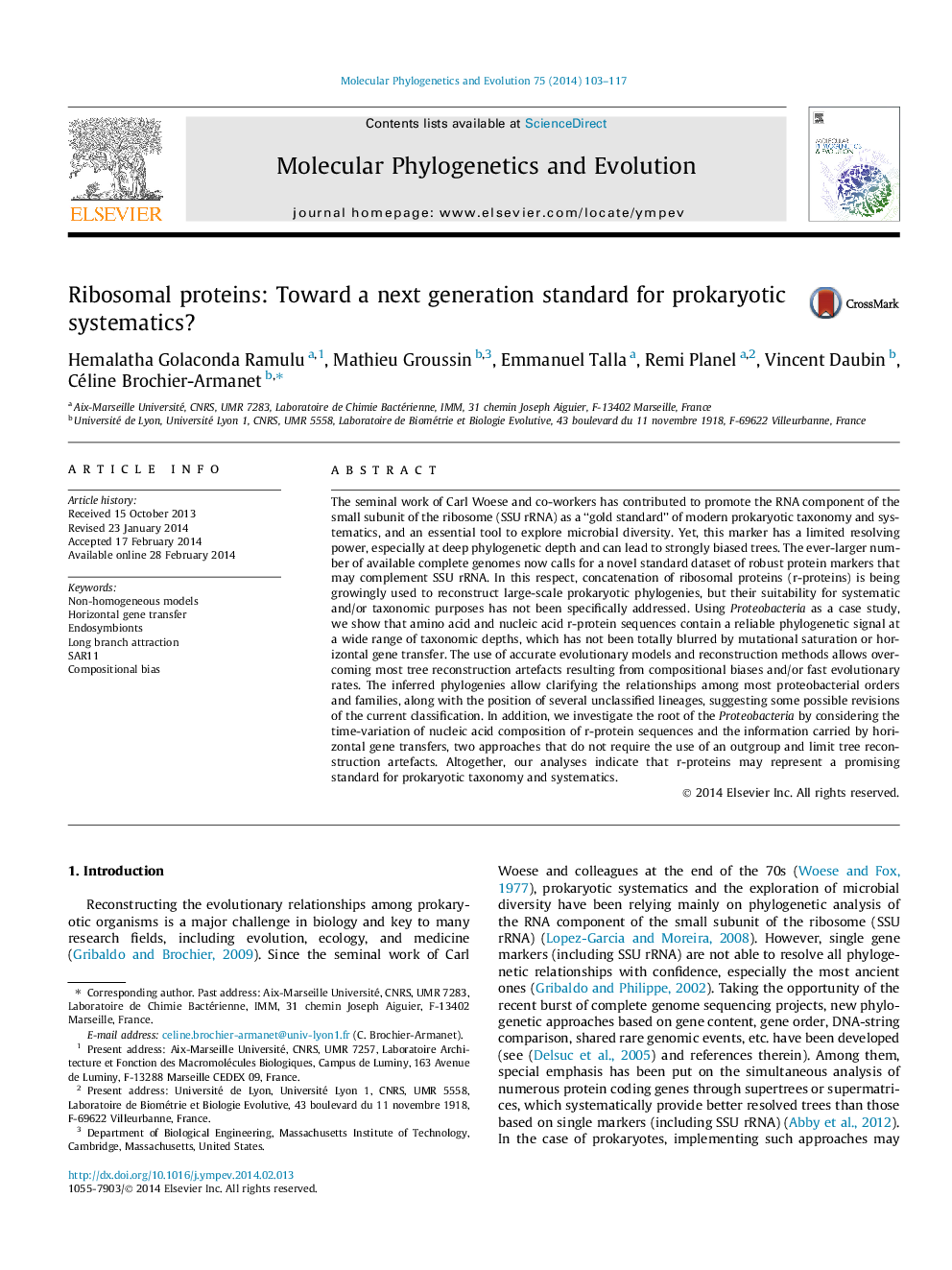| کد مقاله | کد نشریه | سال انتشار | مقاله انگلیسی | نسخه تمام متن |
|---|---|---|---|---|
| 5919553 | 1570820 | 2014 | 15 صفحه PDF | دانلود رایگان |
- Amino acid and nucleic sequences of r-proteins contain a robust phylogenetic signal.
- We clarify the relationships among most proteobacterial taxa.
- We clarify the phylogenetic position of several unclassified lineages.
- An Epsilonproteobacteria rooting is supported two independent approaches.
- R-proteins represent a promising next generation standard for prokaryotic systematics.
The seminal work of Carl Woese and co-workers has contributed to promote the RNA component of the small subunit of the ribosome (SSU rRNA) as a “gold standard” of modern prokaryotic taxonomy and systematics, and an essential tool to explore microbial diversity. Yet, this marker has a limited resolving power, especially at deep phylogenetic depth and can lead to strongly biased trees. The ever-larger number of available complete genomes now calls for a novel standard dataset of robust protein markers that may complement SSU rRNA. In this respect, concatenation of ribosomal proteins (r-proteins) is being growingly used to reconstruct large-scale prokaryotic phylogenies, but their suitability for systematic and/or taxonomic purposes has not been specifically addressed. Using Proteobacteria as a case study, we show that amino acid and nucleic acid r-protein sequences contain a reliable phylogenetic signal at a wide range of taxonomic depths, which has not been totally blurred by mutational saturation or horizontal gene transfer. The use of accurate evolutionary models and reconstruction methods allows overcoming most tree reconstruction artefacts resulting from compositional biases and/or fast evolutionary rates. The inferred phylogenies allow clarifying the relationships among most proteobacterial orders and families, along with the position of several unclassified lineages, suggesting some possible revisions of the current classification. In addition, we investigate the root of the Proteobacteria by considering the time-variation of nucleic acid composition of r-protein sequences and the information carried by horizontal gene transfers, two approaches that do not require the use of an outgroup and limit tree reconstruction artefacts. Altogether, our analyses indicate that r-proteins may represent a promising standard for prokaryotic taxonomy and systematics.
Journal: Molecular Phylogenetics and Evolution - Volume 75, June 2014, Pages 103-117
